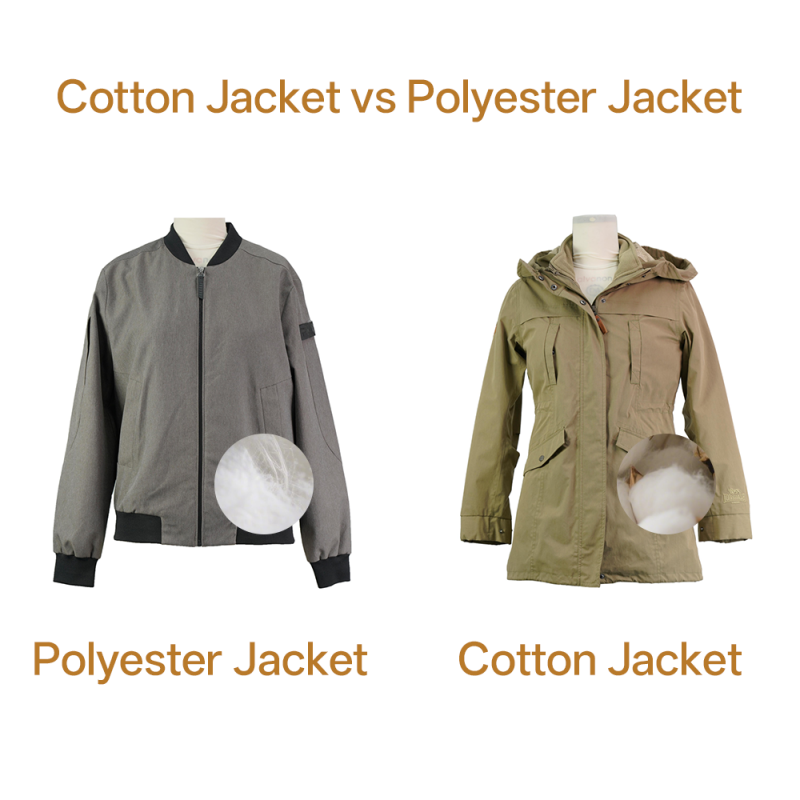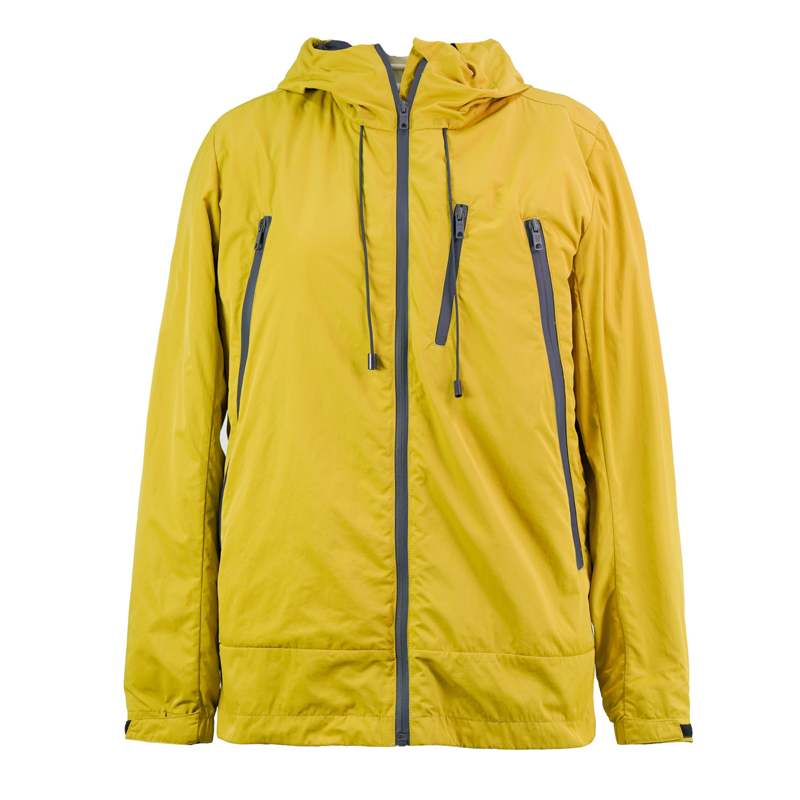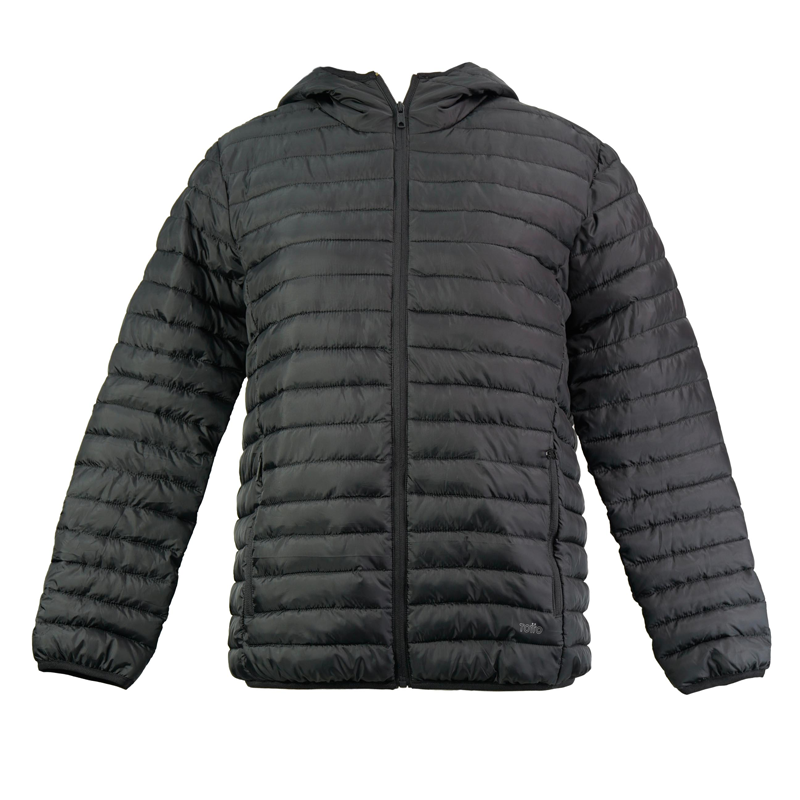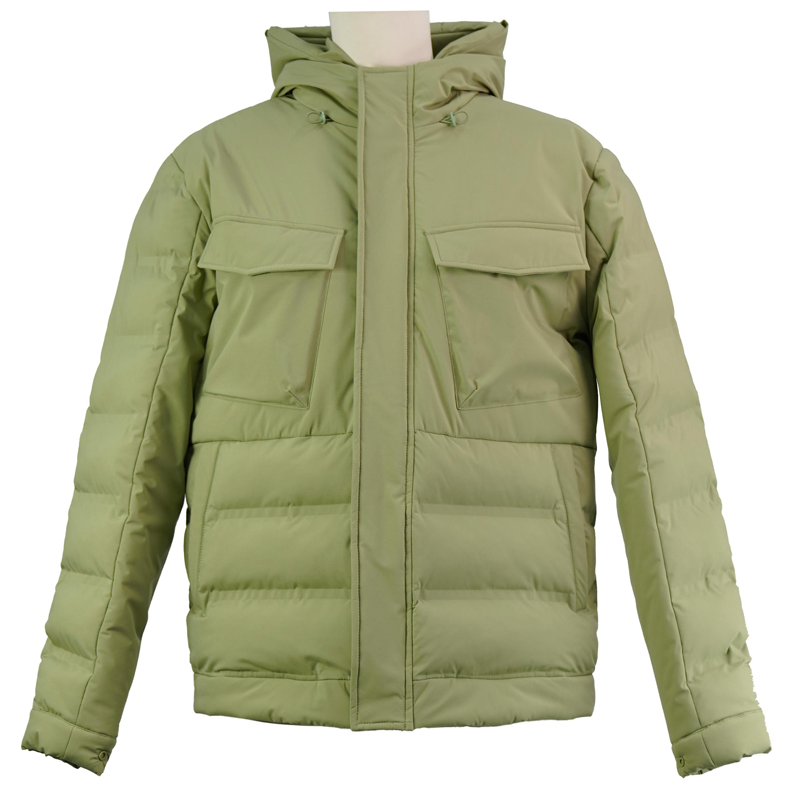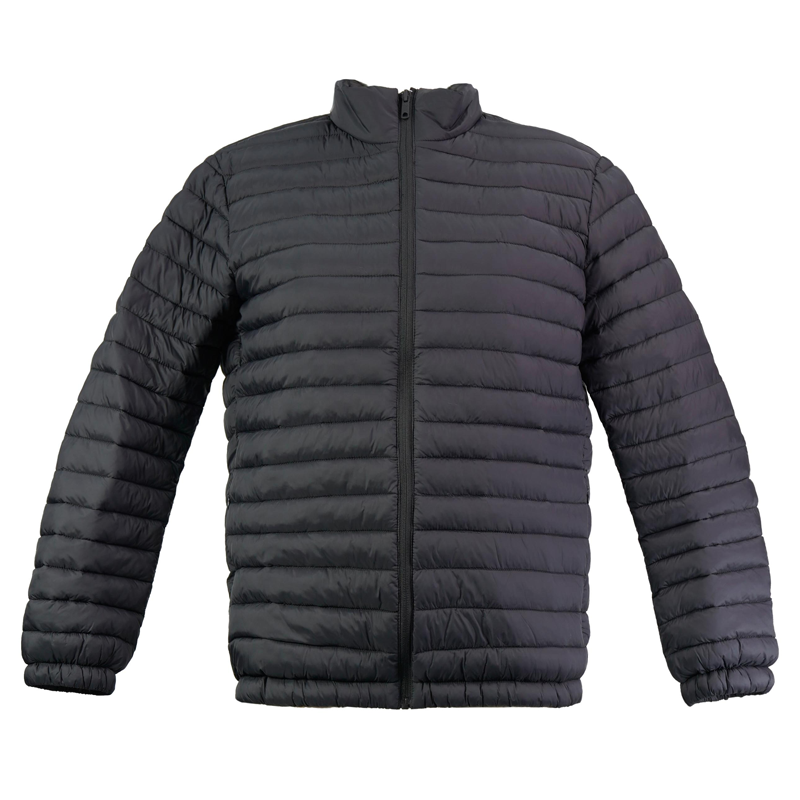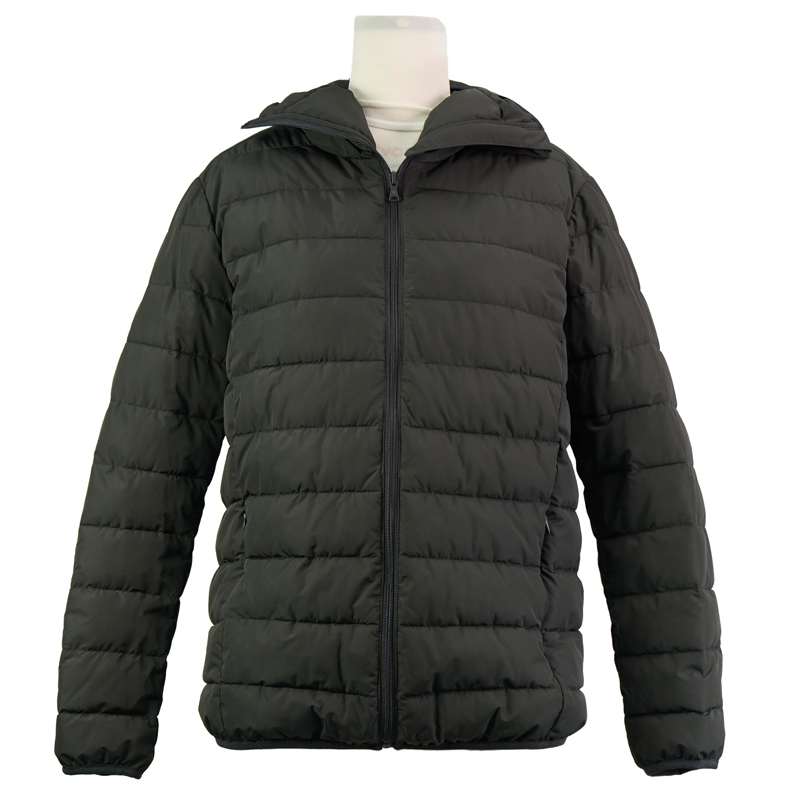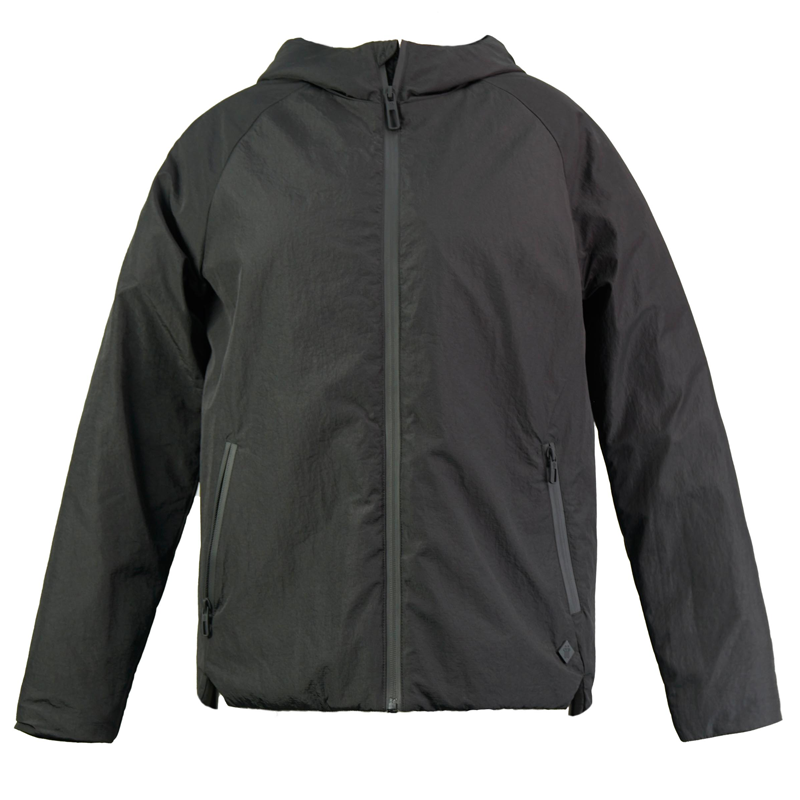In the ever-evolving world of fashion, one debate that refuses to fade away is the rivalry between cotton and polyester jackets. While both materials are widely used in the apparel industry, particularly for outerwear, the choice between them is far from simple. Each has unique strengths, and picking the right one often depends on your lifestyle, values, and environment.
For individuals and businesses alike—including garment manufacturers like JIANGSU OVERSEAS FAREAST INDUSTRIAL CO., LTD., which blends tradition with cutting-edge textile engineering—understanding the pros and cons of each material is not just helpful; it's essential.
Material Origins and Characteristics
Let’s start with the basics.
Cotton is a natural fiber harvested from the cotton plant. It’s breathable, soft, hypoallergenic, and biodegradable. On the other hand, polyester is a synthetic material derived primarily from petroleum. It is engineered for durability, water resistance, and shape retention.
| Property | Cotton | Polyester |
|---|---|---|
| Origin | Natural (plant-based) | Synthetic (petroleum-based) |
| Breathability | High | Medium |
| Moisture-wicking | Low | High |
| Softness | Very soft | Varies (can feel artificial) |
| Durability | Medium | High |
| Biodegradability | Biodegradable | Non-biodegradable |
The contrast is striking, right? But as we dig deeper, these differences start to carry real-world implications, especially in fashion choices.
Comfort and Wearability
Let’s face it, no one wants to wear a jacket that feels like sandpaper. Cotton jackets, thanks to their natural softness and breathability, often win the comfort game. They're perfect for spring or early autumn when the weather is mild. Yet, they can be heavy and less suitable for high-performance or active wear.
Conversely, polyester jackets are usually lighter and more versatile in design. They may not be as breathable, but modern weaving techniques (such as micro-perforation) allow brands like JIANGSU OVERSEAS FAREAST INDUSTRIAL CO., LTD. to engineer polyester fabrics that feel surprisingly comfortable while offering wind and water resistance.
"Comfort is not a luxury in clothing anymore. It's the minimum expectation."
So, if you’re choosing a jacket for light hikes, sports, or unpredictable weather, polyester might be your go-to.
Durability and Maintenance
Here's where polyester really starts to shine. It resists shrinking, wrinkling, and stretching, which is great for people on the go. Washing it is also a breeze—you can toss it in a machine with little concern for wear and tear.
Cotton, while comfortable, is more fragile in this aspect. It can shrink in hot water, wrinkle easily, and deteriorate over time. This means more cautious care, such as air drying or gentle wash cycles.
| Maintenance Factors | Cotton | Polyester |
| Shrinkage Risk | High | Low |
| Wrinkle Resistance | Low | High |
| Wash Durability | Moderate | High |
| Drying Time | Long | Short |
When you think of uniforms, travel jackets, or school outerwear, the answer becomes clear: polyester offers better long-term resilience.
Environmental Impact
The conversation gets murky here. Cotton, as a natural material, seems eco-friendly, but conventional cotton farming is resource-intensive. According to the World Wildlife Fund, it takes 2,700 liters of water to make one cotton shirt. That’s a mind-boggling figure.
Polyester, meanwhile, is made from fossil fuels and takes hundreds of years to decompose. However, modern innovation has introduced recycled polyester (rPET), which is made from recycled plastic bottles. Brands that prioritize sustainability, like JIANGSU OVERSEAS FAREAST INDUSTRIAL CO., LTD., increasingly integrate recycled polyester into their production lines.
| Environmental Factor | Cotton | Polyester |
| Water Usage | Very High | Low |
| Biodegradability | Yes | No |
| Carbon Footprint | Moderate | High (unless recycled) |
| Recyclability | Limited | High (if rPET) |
In short, neither is perfect. The future may lie in hybrids or innovative practices that reduce the environmental cost.
Style and Design Flexibility
Cotton jackets tend to appeal to those with a classic, earthy, or vintage style. Think denim jackets, bomber cuts, and field jackets. These styles age well and soften beautifully with wear, giving them character.
Polyester, however, is the darling of modern fashion designers. It can be easily dyed, shaped, and molded, offering high design flexibility. That’s why activewear brands lean heavily into polyester.
At JIANGSU OVERSEAS FAREAST INDUSTRIAL CO., LTD., our 10 garment production lines and international design centers allow us to create both traditional cotton garments and cutting-edge polyester jackets. Our clients appreciate this dual focus—offering stylish yet practical products tailored to diverse markets in Europe, the USA, and Australia.
Climate Suitability
Weather plays a huge role in fabric performance. Cotton jackets work best in dry, warm-to-mild climates. They absorb moisture but don’t dry quickly, which could become uncomfortable.
Polyester jackets excel in wet, cold, or variable climates due to their water resistance and fast-drying capabilities. That makes them suitable for winter wear, travel gear, and hiking jackets.
| Climate Type | Recommended Fabric |
| Hot & Dry | Cotton |
| Cold & Wet | Polyester |
| Mild & Humid | Polyester (with vents) |
| Transitional Seasons | Cotton or Blend |
For retailers and wholesalers looking to cater to specific geographies, understanding these preferences is crucial. Luckily, with production bases in China, Myanmar, Vietnam, and Cambodia, we can adapt swiftly to these climate-driven needs.
Price Considerations
Generally speaking, polyester jackets are cheaper to produce than cotton ones. This is due to the scalability of synthetic fabric production and lower resource costs. However, premium polyesters (especially recycled versions) can match or exceed cotton in price.
Cotton, especially organic or ethically sourced types, can become expensive. For fashion brands that emphasize sustainability, cotton jackets are a common choice, despite the cost.
At JIANGSU OVERSEAS FAREAST INDUSTRIAL CO., LTD., we cater to both ends of the spectrum. Thanks to our global production capacity of 10 million garments annually, we offer competitively priced products without compromising on quality or ethics.
Final Thoughts: Which Should You Choose?
So… cotton or polyester? It really depends on your priorities:
Want comfort and a natural feel? Go for cotton.
Need resilience, water resistance, and affordability? Choose polyester.
Thinking green? Opt for organic cotton or recycled polyester.
And if you’re still torn, hybrids are the answer. Many jackets today combine both materials to balance breathability with performance.
At JIANGSU OVERSEAS FAREAST INDUSTRIAL CO., LTD., we offer a full range of cotton, polyester, and blended jackets tailored to customer needs worldwide. Our 400+ designers and technicians, paired with BSCI and WRAP certifications, ensure that your fashion vision becomes reality.
We don’t just follow the market—we help shape it. If you're a fashion brand, wholesaler, or retailer looking to stay ahead, we invite you to partner with us.
